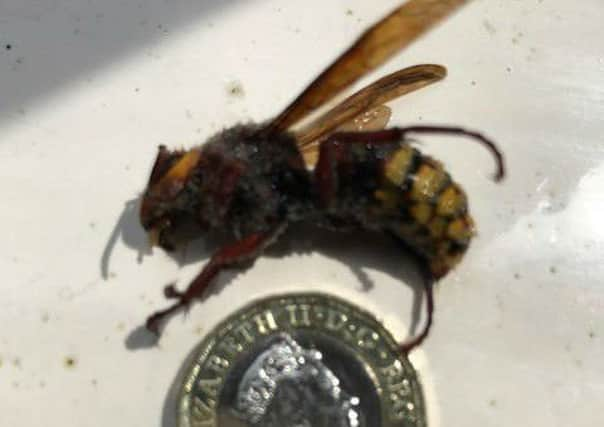Graham's terrifying encounter with a '˜super wasp' in the Vale of Belvoir


Graham Hall was at his Sproxton home when he heard a very loud buzzing sound coming from the other side of the house.
He went into the kitchen and came face-to-face with a 4cm-long European hornet, which is believed to be rarely seen in the UK.
Advertisement
Hide AdAdvertisement
Hide Ad“I was three rooms away when I heard the buzzing,” said Graham.
“I went into the kitchen and saw this enormous and terrifying wasp.
“It was at least 4cm in length which was the most scary thing.”
Graham was so fascinated by the insect he decided not to swat it and kill it, instead he used fly spray, to keep the body intact.
Advertisement
Hide AdAdvertisement
Hide AdGraham added: “I had a look on the internet and was surprised to find that it was one of these super wasps.”
This type of insect eats wasps and bees and has a venomous sting which can hurt, itch or swell for 24 hours.
Peter Bugunovic, of the Leicestershire Bee Keepers Association, said: “These European hornets are quite terrifying if you’ve not seen one before and they are aggressive.
“My advice is to keep away from them and don’t annoy them because they give a nasty sting.”
Advertisement
Hide AdAdvertisement
Hide AdThe appearance of the ‘super wasp’ comes as a warning has been issued about an expected rise in the number of wasps, flies and ants in the UK because of the mild winter and warm spring, creating ideal breeding conditions.